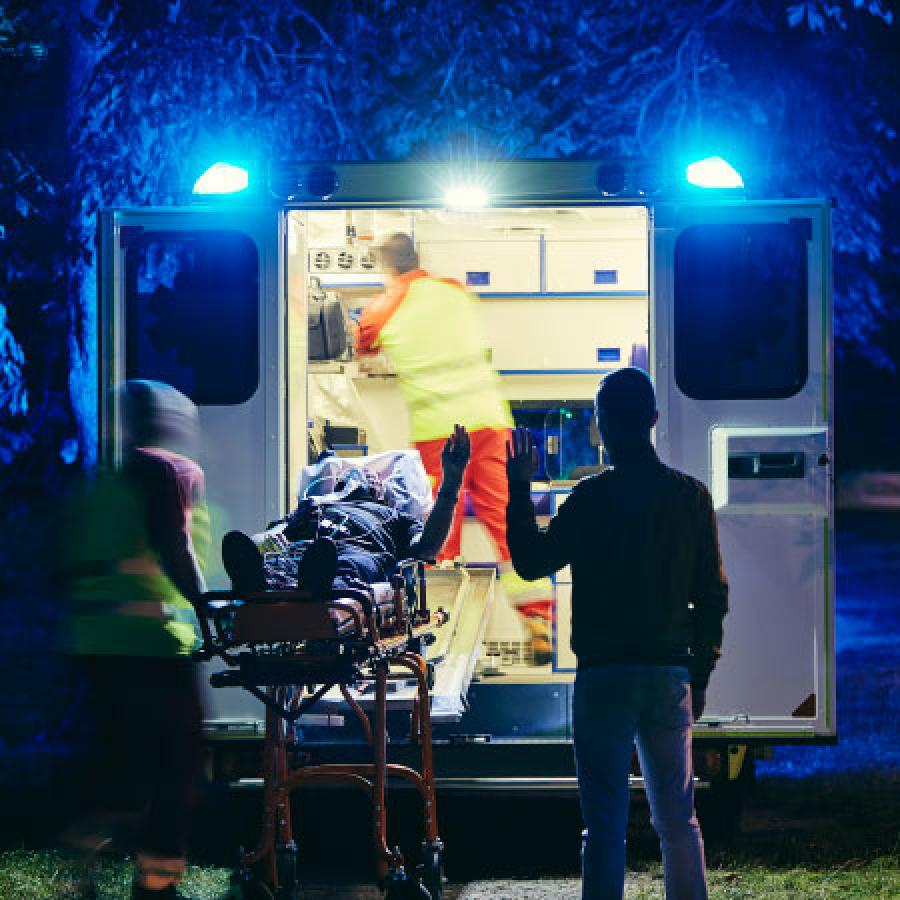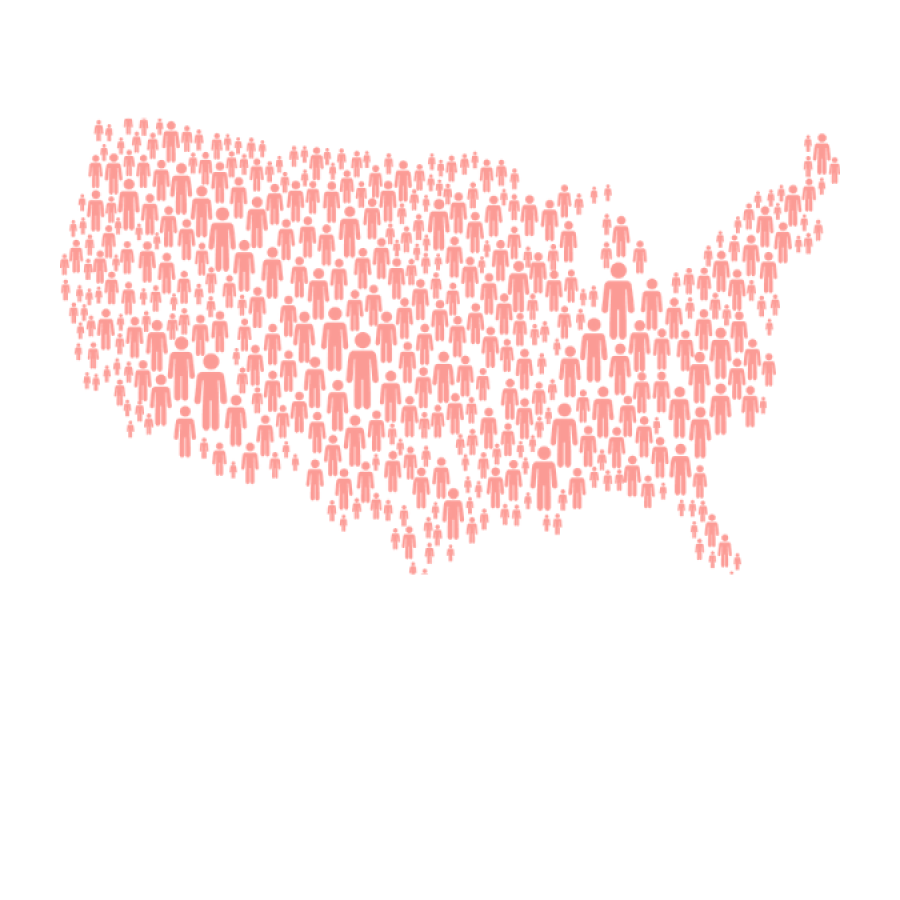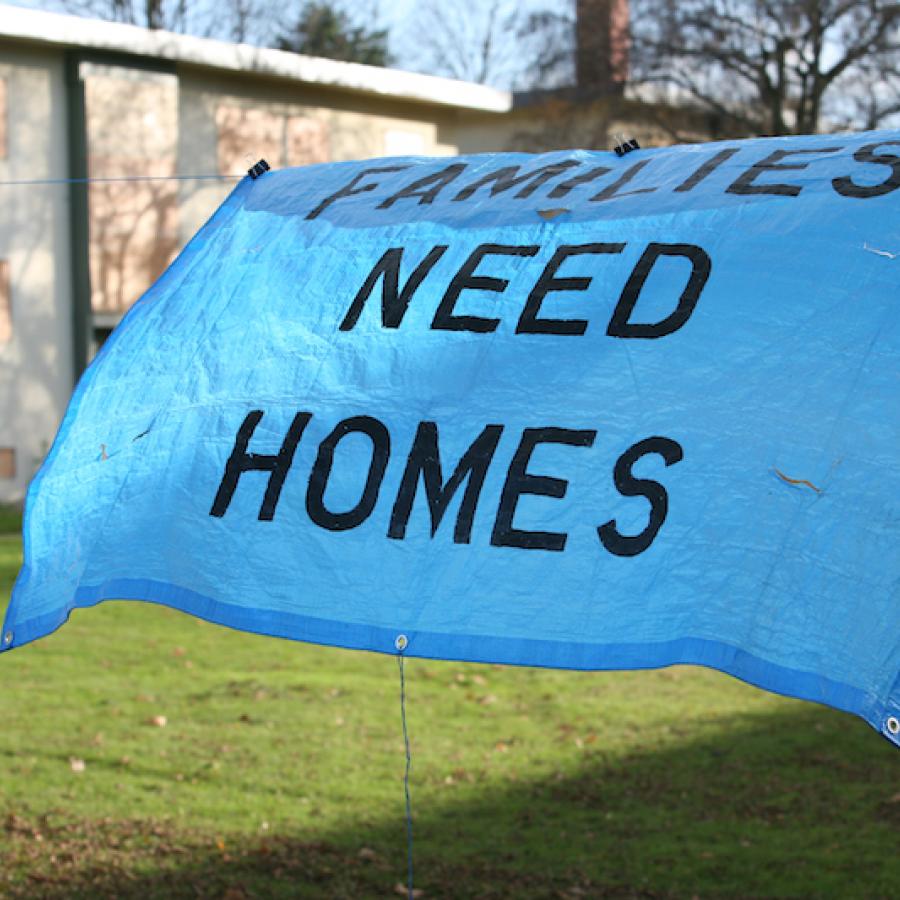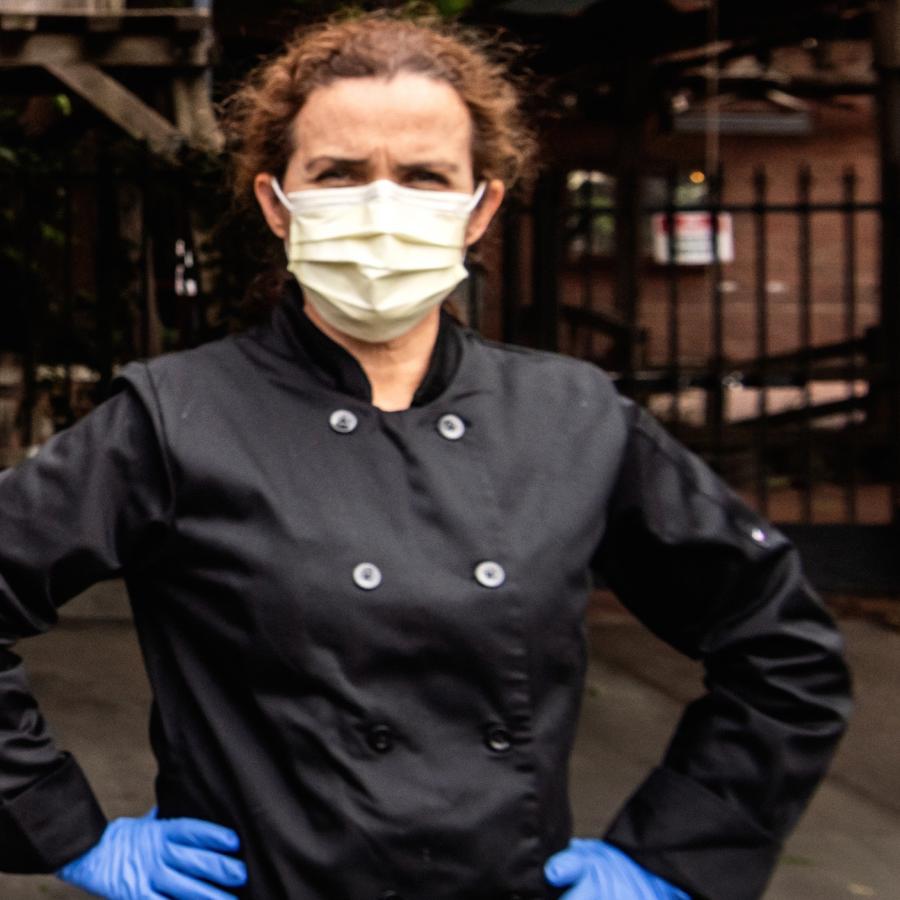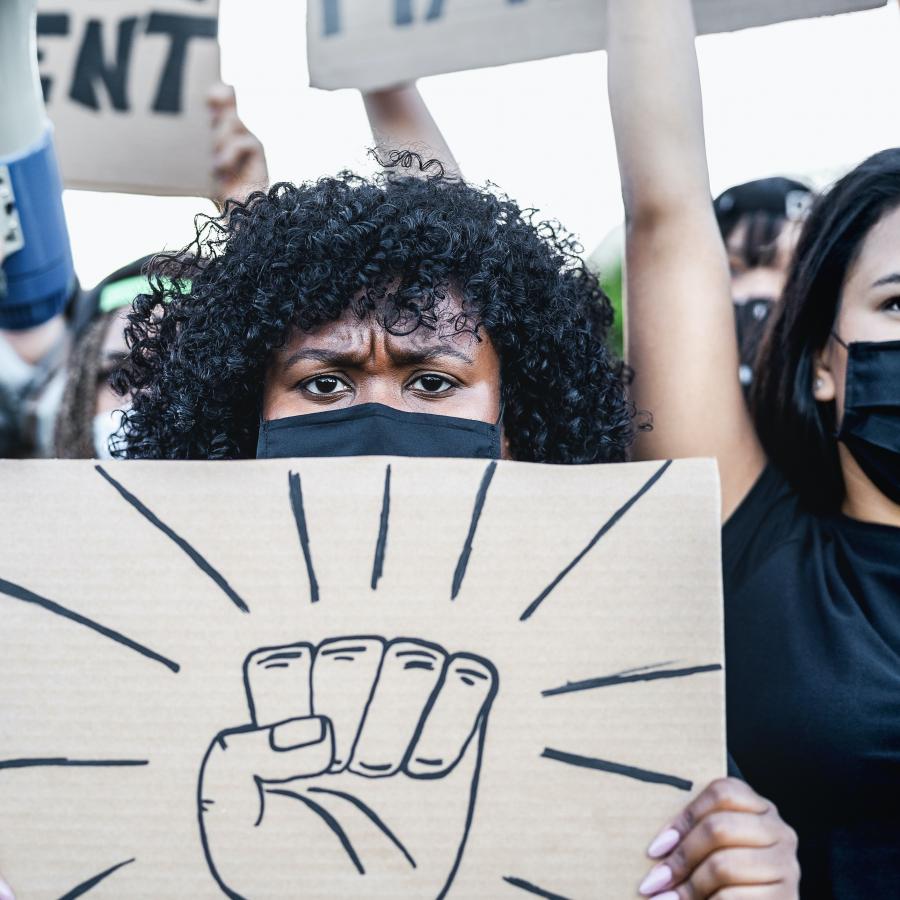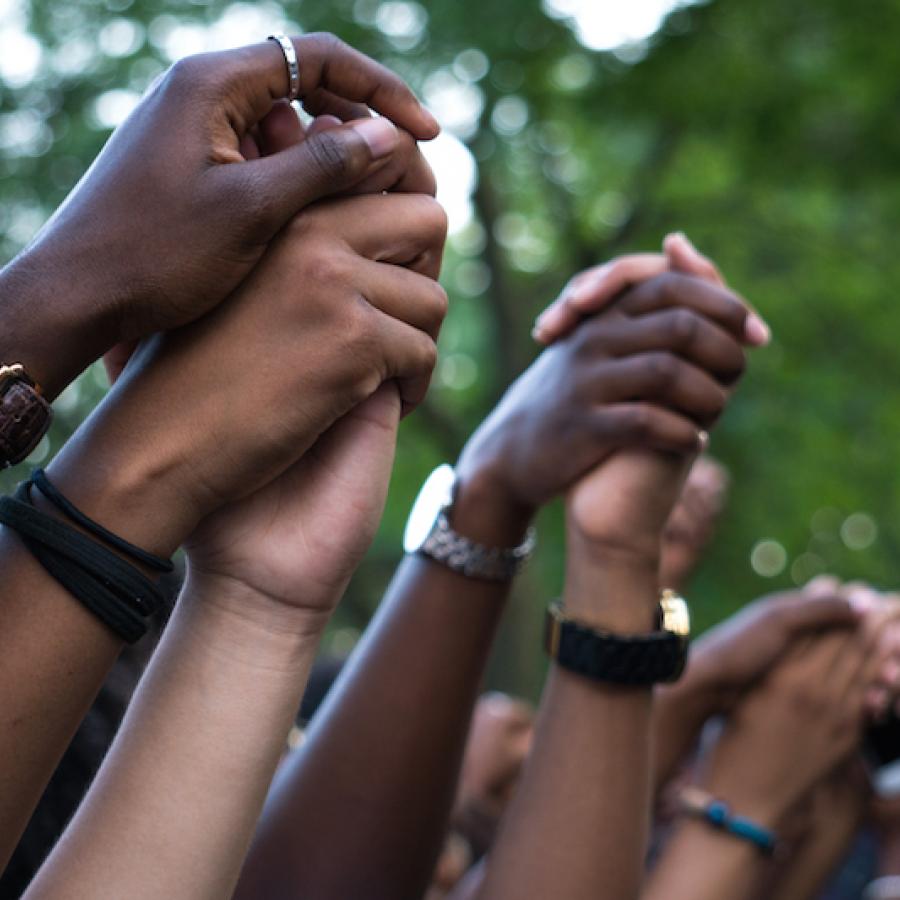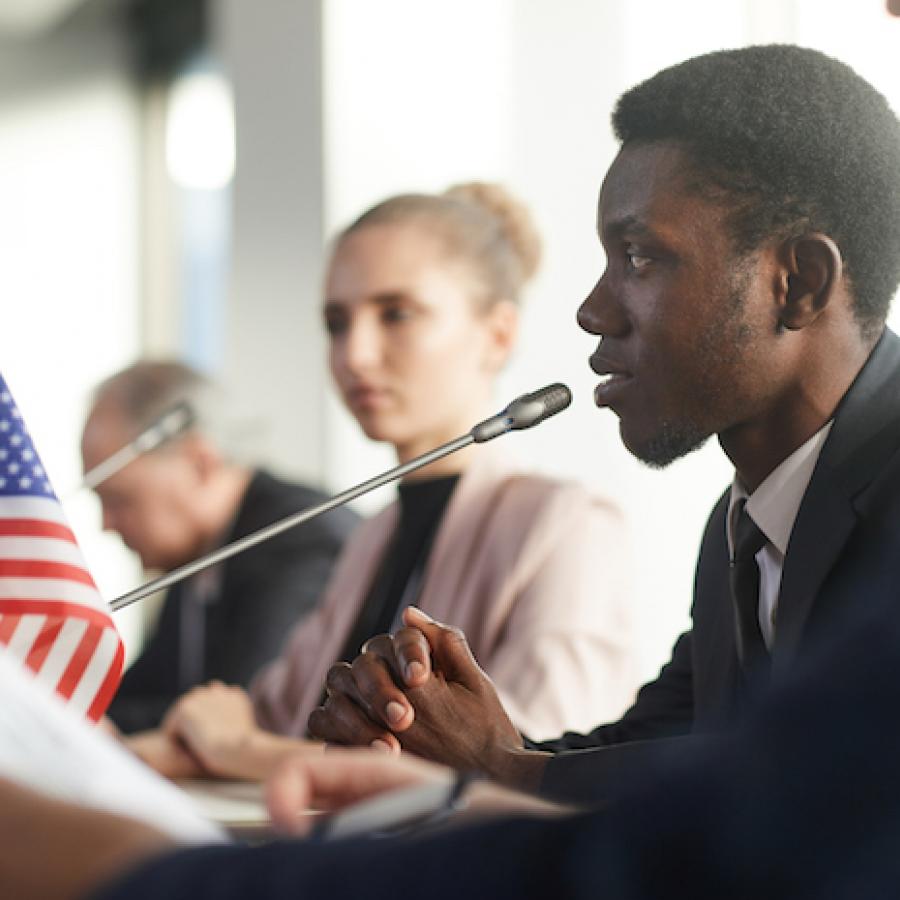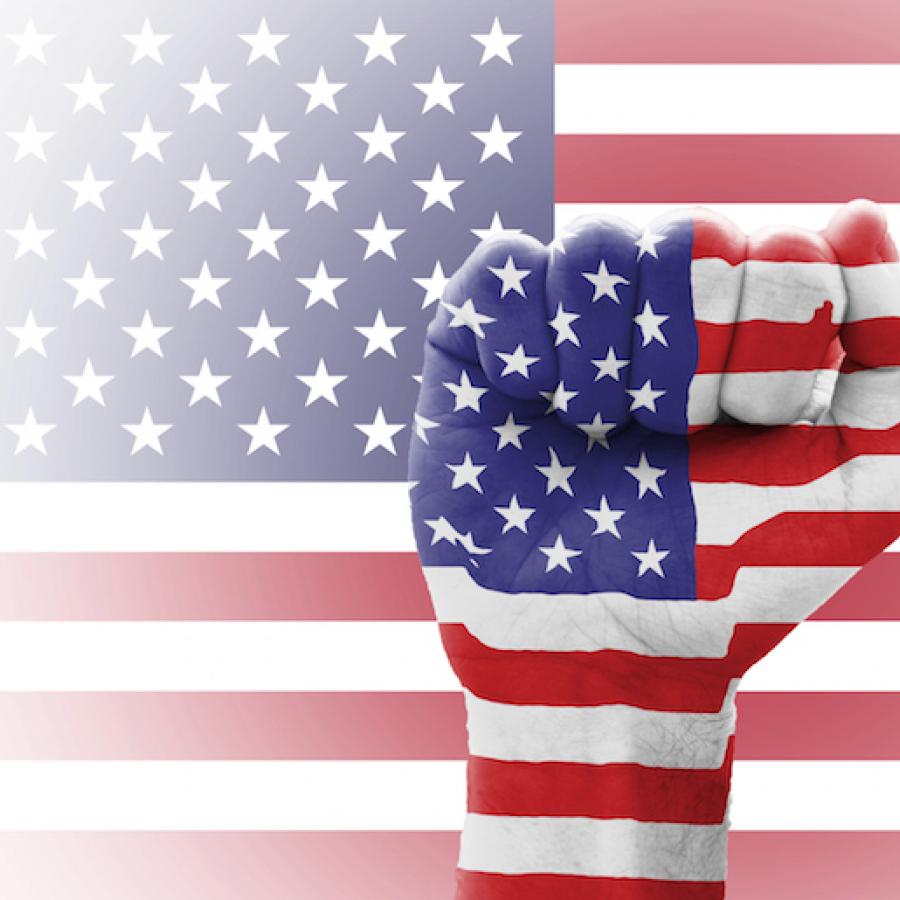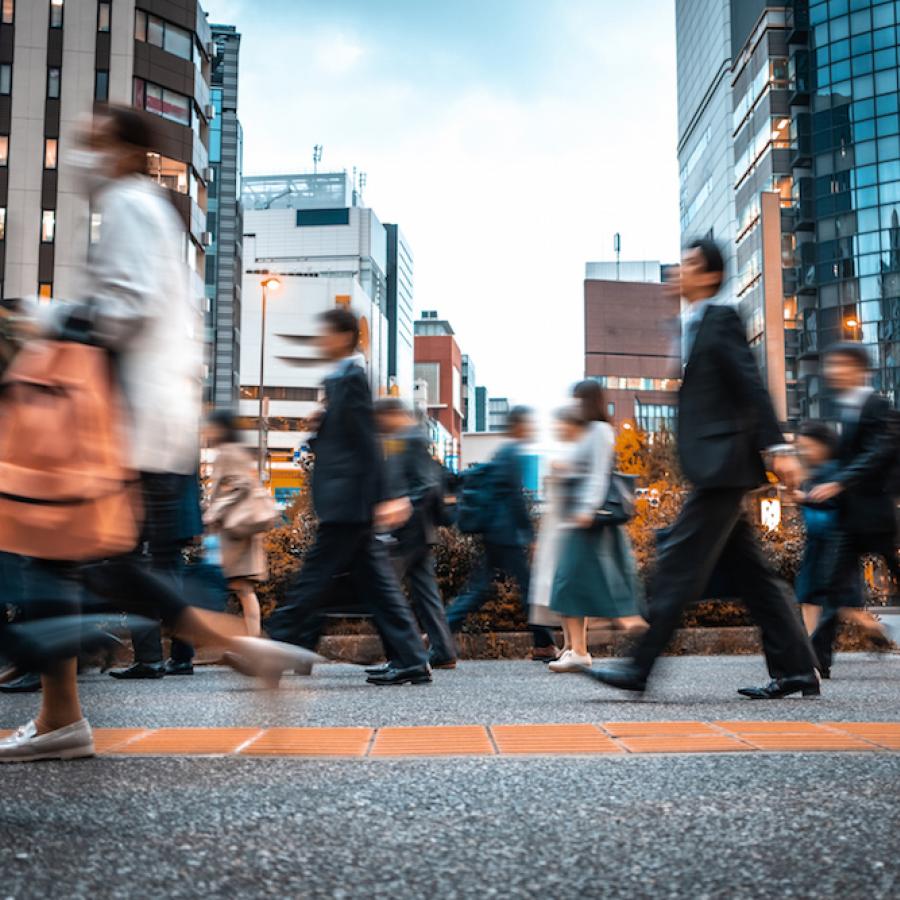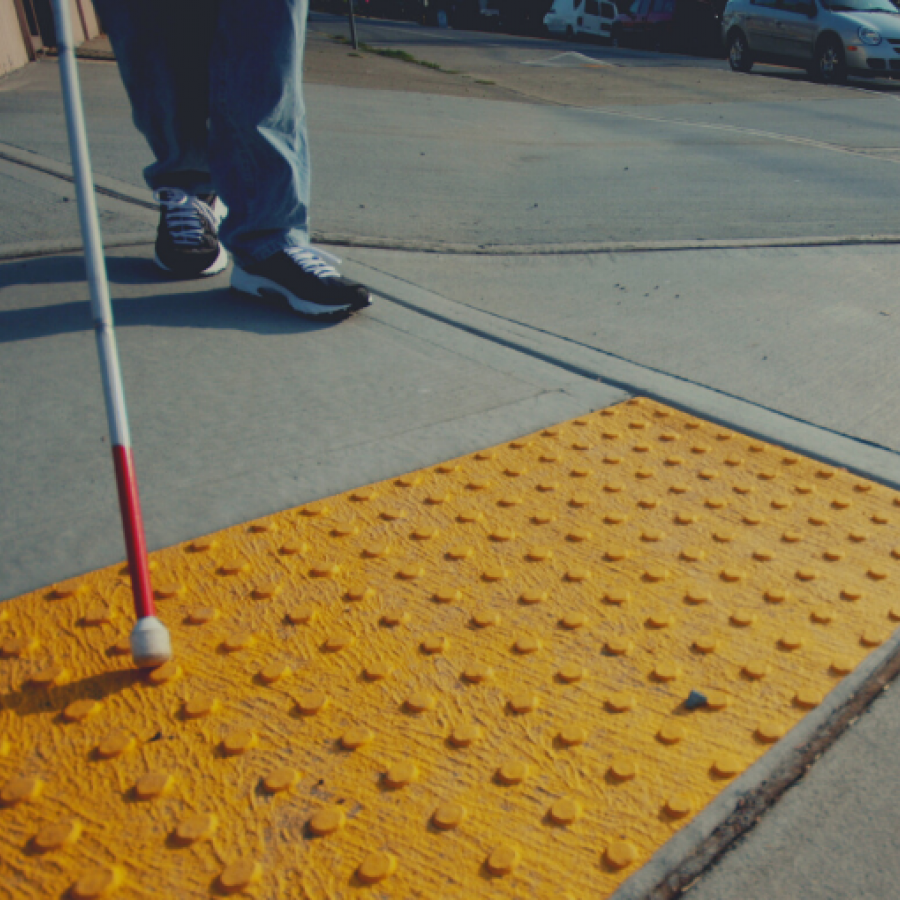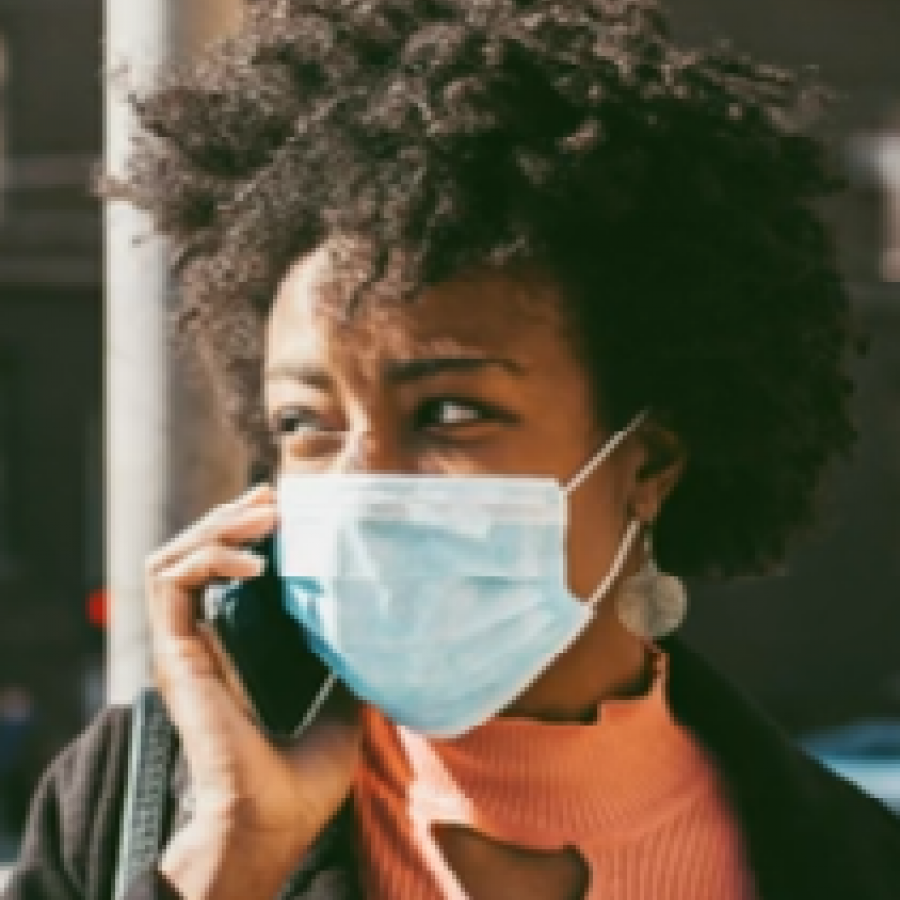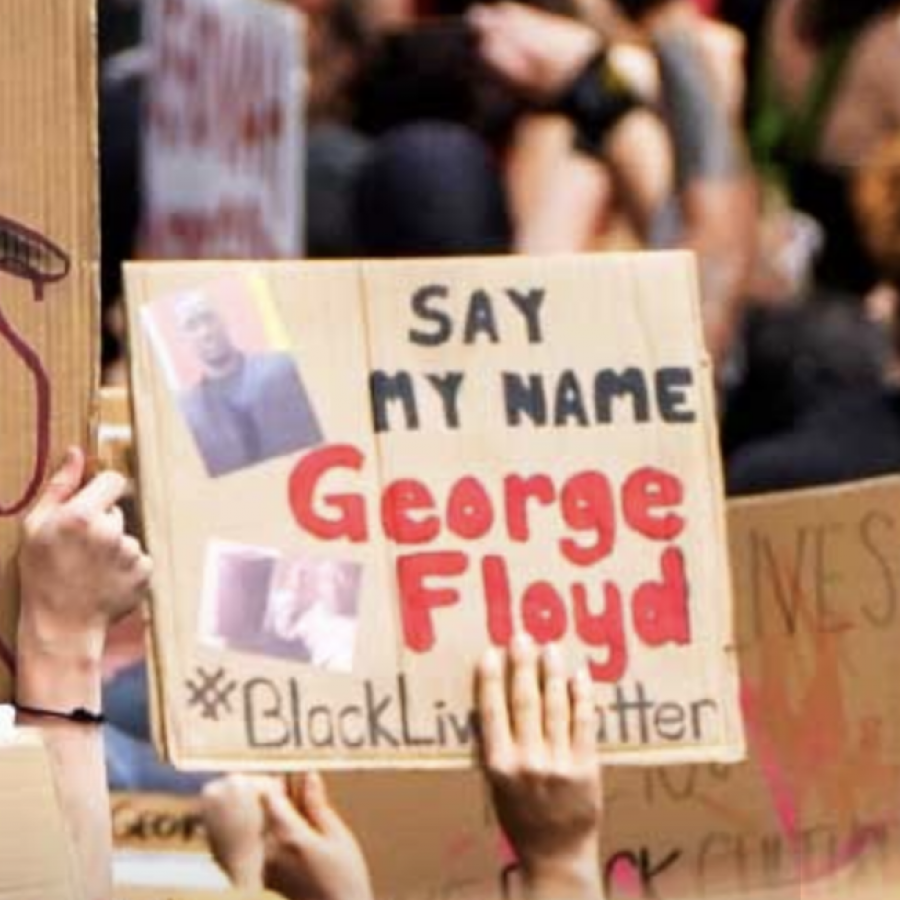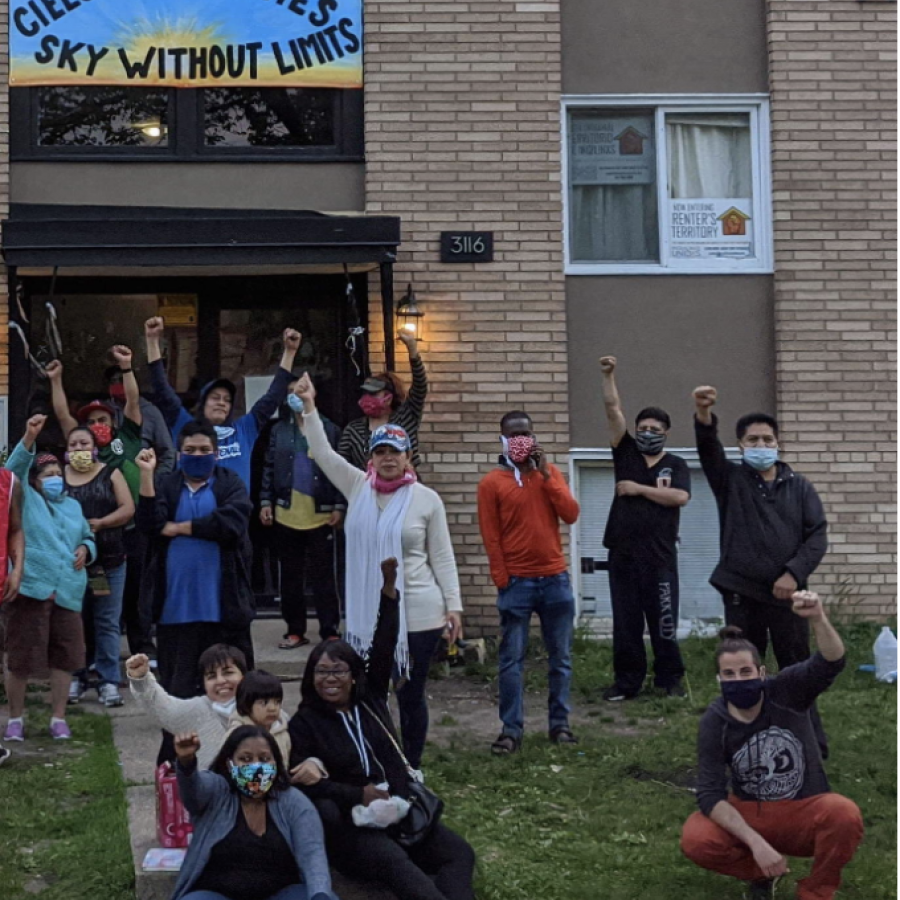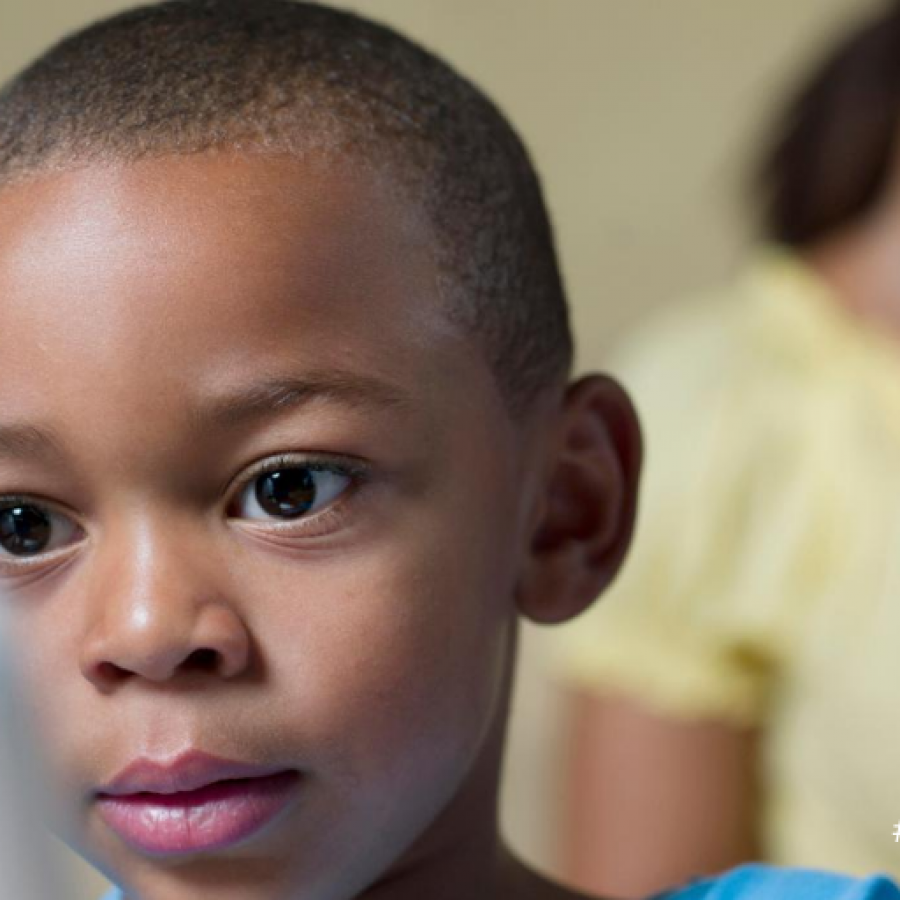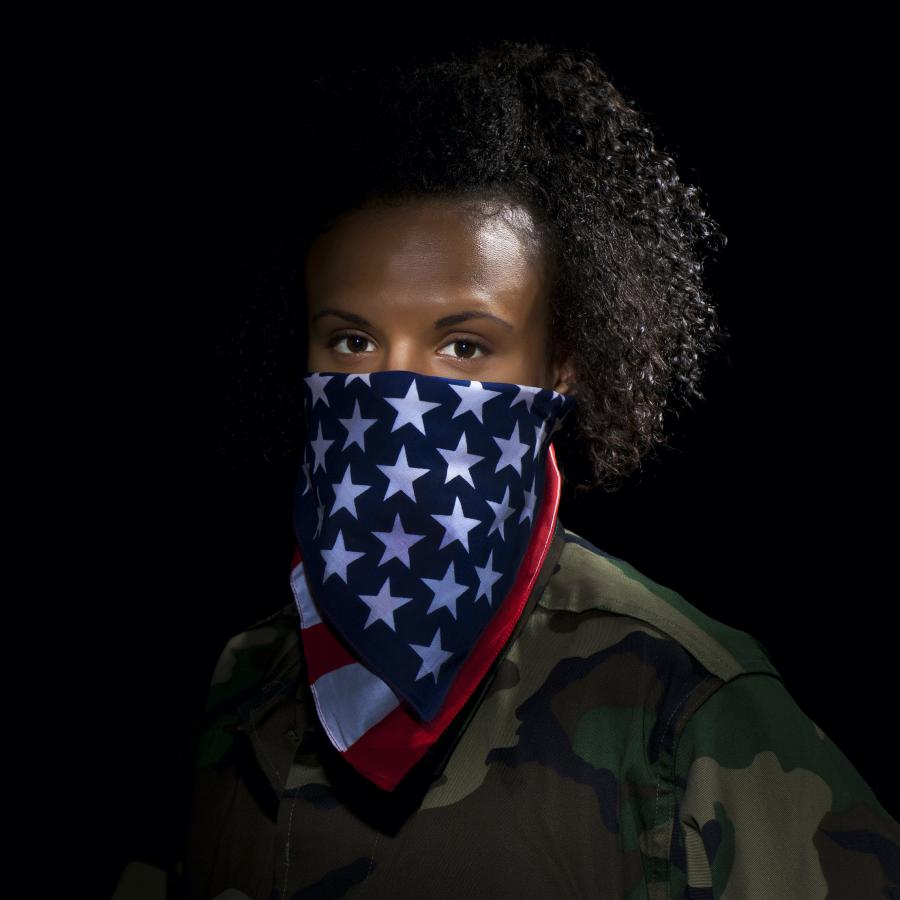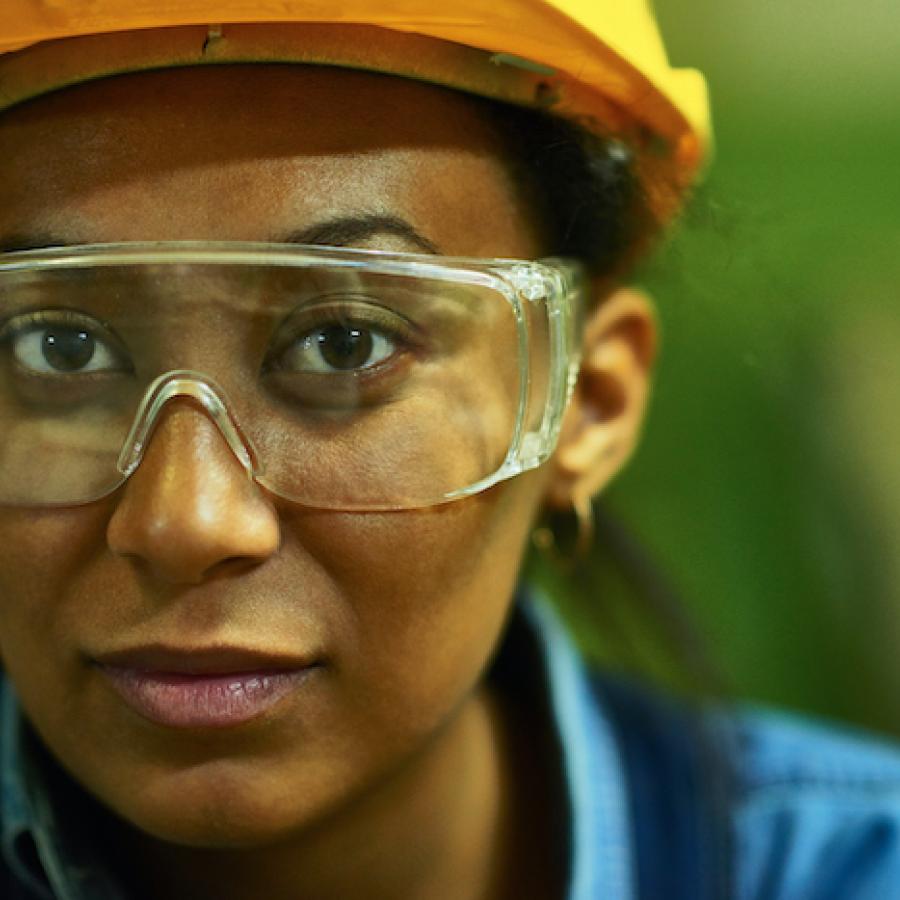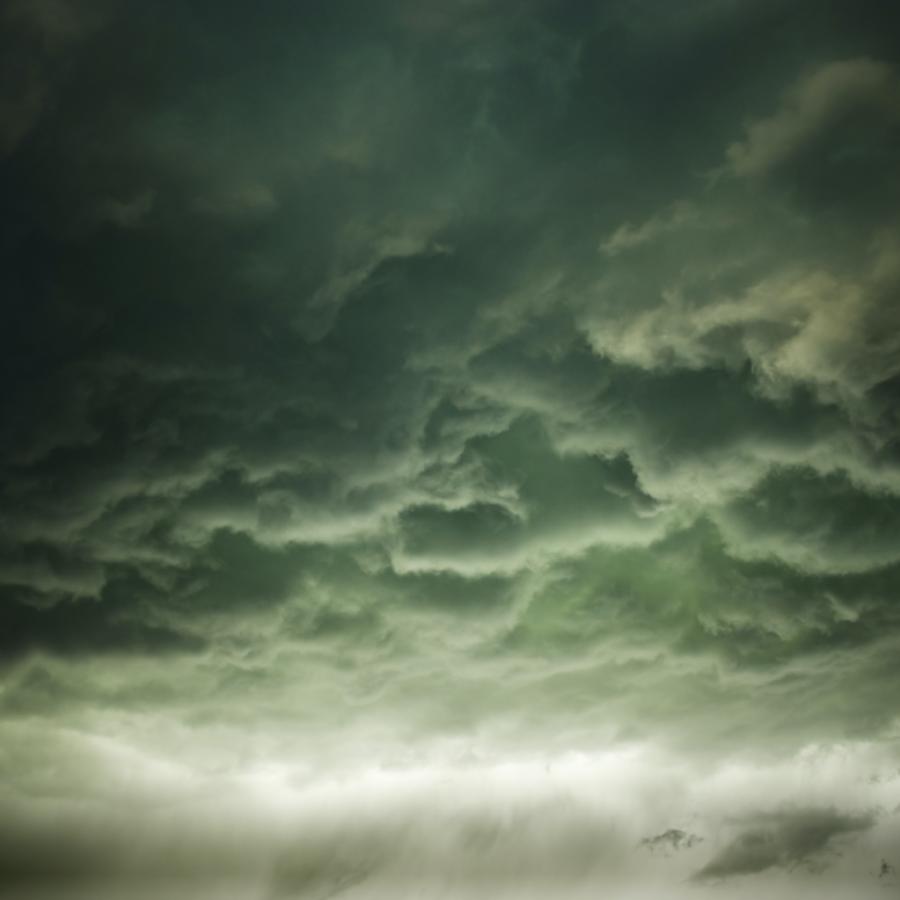The movement-building power of sadness, why racial inequity is as deadly as the worst pandemics, and who’s first in line for a coronavirus vaccine, in this week’s Covid, Race, and the Revolution.
Issue No. 21. September 2, 2020
Sadness and Revolution
By Angela Glover Blackwell
These days are taking a toll on me. The pandemic, the economy, racism coming to a head, police and vigilante violence, the election and voter suppression, overworking and missing my routines. Through most of this I have felt energized by the protests and the prospect of bringing forth fundamental change, grounded in a reckoning with the nation’s history of racism and anti-Blackness. But I am experiencing a wave of sadness.
I believed we were on the cusp of a national consensus that police violence against Black bodies must stop. Then it happened again in Kenosha. I thought the large White presence at Black Lives Matter rallies symbolized a broadening desire for big change. Now, hate tries to turn solidarity into race wars. The weight of the obituary pages sits on my chest, taking my breath away with the addition of Chadwick Boseman.
I am sad. Not depressed. Not discouraged. Sad and angry. These two emotions are probably a workable combination. Sadness alone can lead to inaction. Anger alone can dissipate before action is taken, or be satiated too readily by inadequate actions. But together, the personal, immediate gnawing of sadness combined with the adrenaline, outrage, and momentum of anger can fuel the Revolution.
Not surprisingly, many people working to create a fair, just, and inclusive future are expressing anguish right now. Let's embrace it. It is the manifestation of our humanity. And we will not allow hate and fear to prevail.
Onward,
Angela Glover Blackwell
News, Analysis, and Commentary, Curated from Around the Web
Racial inequity is as deadly as the coronavirus, according to a new analysis of US mortality data going back to 1900. Even now, in the midst of Covid-19, White Americans are dying at a lower rate than Black Americans die every year. “Black disadvantage operates on the scale of the worst pandemics in modern U.S. history” and so, too, should the tools we deploy to fight racial disadvantage, Elizabeth Wrigley-Field writes in Proceedings of the National Academy of Sciences. "Our imagination should not be limited by how accustomed the United States is to profound racial inequality.”
Racial stereotypes and biases baked into medical research and practice — from pharmaceutical formulations to algorithms used for diagnosis — dangerously skew care of Black patients, Patricia J. Williams writes in The Nation. Black medical scholars have asserted for years that scientifically baseless racial beliefs lead doctors to ignore or discount the symptoms of Black patients until they’re on the verge of death. “Perhaps it has taken the convergence of Black Lives Matter, a global health crisis, and a diverse new generation of outspoken medical professionals for this topic to finally be taken seriously.” A new podcast, Anti-racism in Medicine, explores these issues, with a debut episode on racism, police violence, and health.
Who should be first in line for a Covid-19 vaccine? A report released Tuesday at the request of the federal government recommends top priority for health-care workers in high-risk settings, followed by adults of all ages who have medical conditions that increase their risk of Covid complications, and older people living in nursing homes and other group facilities, Stat reports. In the second phase of vaccine distribution come essential workers, and people living or working in homeless shelters, prisons, and group homes. Although some experts have called for prioritizing people of color, who have been hit disproportionately hard by Covid, the report does not recommend priority designations by race or ethnicity.
The large US coronavirus vaccine trials in the final phase of testing don’t meet even the bare minimum for representative participation, the Washington Post reports. The two companies leading the vaccine race, Moderna and Pfizer, have enrolled half the people needed for the studies, and only about a fifth of participants are Black or Latinx. Dr. Anthony Fauci, director of the National Institute of Allergy and Infectious Diseases, told CNN he wants to see people of color represented in vaccine trials at levels at least double their percentages in the population, because of Covid-19’s outsized impact. By that standard, two-thirds of trial participants would be Black, Latinx, American Indian, and Alaskan Native.
Recruiting Black Americans for vaccine research means overcoming distrust and a sense of betrayal, born from centuries of medical abuse, neglect, and clandestine experimentation, Candace Y. A. Montague writes at the Center for Health Journalism. In a recent survey by researchers at four universities, 52 percent of Black respondents said they were likely to get a Covid-19 vaccine when one is available, compared to 67 percent of White respondents, 71 percent of Latinx respondents, and 77 percent of Asian Americans.
The pandemic has exposed a truth about the nation’s unemployment insurance system: it is broken by design, Fast Company reports. Millions of people who have filed for benefits since March are still waiting to get them. The magazine profiles four people trapped in a bureaucratic maze built to fail, denying jobless workers a financial lifeline and escape from economic insecurity.
Black workers are less likely to receive unemployment benefits, though they are more likely to be unemployed, ProPublica reports. States, particularly in the South, have severely cut benefits and restricted elibibility. Black workers tend to be jobless longer, often after benefits expire. And Black women, in particular, are concentrated in jobs excluded from unemployment programs.
The cratered economy has been especially vicious for young adults. Between February and June, the share of Americans ages 16-24 who are neither employed nor in school — a measure known as the “disconnection rate” — has more than doubled, finds a new analysis of Census Bureau data by Pew Research Center. Job losses account for most of the increase. The economy has also devastated Black-owned businesses. In Philadelphia, the number of active Black business owners plunged by 68 percent from early March to July, compared to a 44 percent drop in the number of active White business owners, The Philadelphia Tribune reports.
In a scene becoming painfully familiar as suffering increases and the safety net shrinks, a line of cars stretched for blocks last week as Los Angelenos waited to receive free food boxes distributed at the Hollywood Bowl.
Low-income renters got a rare but important bit of good news Tuesday, when the Centers for Disease Control and Prevention ordered a halt to evictions for the rest of 2020 for households that can’t make rent because of job loss or big medical bills.
Nursing home aides, warehouse workers, farmworkers, meatpackers, and other essential workers have been among those affected most by the novel coronavirus. Should businesses be held accountable for failing to protect them from infection and death? The Los Angeles Times reports on the growing number of lawsuits filed by workers and their survivors — including a class action on behalf of 800 workers in a Southern California supermarket warehouse — and on the furious corporate lobbying to win federal and state liability protections. Congressional Republicans and the White House are pushing for a sweeping liability shield for business, a sticking point in the negotiation stalemate with Democratic lawmakers over a fourth, desperately needed relief package.
The racially disparate effects of Covid-19 and its social and economic fallout, combined with the energized movement against racism, have inspired reporting, analysis, and public conversation about how America arrived at this point. In The Nation, Marcia Chatelain takes a penetrating look at how federal housing investments failed Black Americans, worsened inequality, and advanced white supremacy. “The nation’s rootedness in slavery and the way White Americans have galvanized the privileges afforded them are critical to understanding the problem of race in America, but so too is the history of housing and racism in American cities.”
The New York Times examines how racist housing policy and lending practices from the 1930s through the 1970s shunted Black residents into segregated neighborhoods that are now the hottest parts of cities, forced to confront climate change with too much heat-trapping pavement and too little greenery. “In cities like Baltimore, Dallas, Denver, Miami, Portland, and New York, neighborhoods that are poorer and have more residents of color can be 5 to 20 degrees Fahrenheit hotter in summer than wealthier, Whiter parts of the same city.”
Hurricane Laura, which hit Louisiana last week with Category 4 winds and a huge storm surge, brought public attention to the unprecedented challenges at the nexus of race, climate change, and Covid. Residents were warned to get out of harm’s way but hurricane shelters were closed due to pandemic precautions, National Geographic reports. In a blog post for the Union of Concerned Scientists, Juan Declet-Barreto writes that evacuating a home takes money, transportation, a destination, and in many places the ability to read English because updated information is not offered in other languages. “As it turns out, many U.S. coastal counties at risk of flooding from a Category 5 storm have large populations that lack many of these key resources.” And many of these communities have large Black and Latinx populations.
Inequitable infrastructure investments are also front-and-center in the crisis of education, as Covid forces schools to resort to online instruction. Fast Company captures the problem: “How did the birthplace of the internet become a nation where broadband is unavailable to large chunks of the population, keeping students from taking part fully in modern education and their parents from taking advantage of the modern economy?” The short answer: big investments were made with an eye to corporate profits, not to serving people and expanding connectivity. The magazine points to public-run internet services, such as one in Chattanooga, Tennessee, as the best hope for addressing the immediate crisis in education and developing long-term solutions. California Healthline reports on the harsh consequences of the digital divide for low-income children receiving special-education services.
Without meaningful federal action, the challenges facing Black communities now could hinder them for a generation, argues the Joint Center for Political and Economic Studies. It calls on the government to: (1) provide financial support for Black workers through direct payments, safety net expansion, and tax revisions; (2) sustain Black businesses with loan forgiveness and other support; (3) expand internet access among Black households; and (4) protect our democracy by investing in election infrastructure and making it easier to vote.
An accurate 2020 census is crucial for making changes like these where they’re needed most and for ensuring democratic representation in government. The US Census Bureau has struggled to count the whole population amid the pandemic, and now the White House plans to shut down the effort at the end of September, a month early. The move is certain to undercount people of color, Aggie Yellow Horse writes in The Conversation. The Census Bureau estimates it has counted 83 percent of the population as of August 31, ranging from 73 percent in New Mexico to 97 percent in Idaho.
PolicyLink draws from articles, videos, interviews, and other sources across platforms, as well as from our network of equity leaders and activists, to bring you the latest information about COVID-19 and race. We offer this resource to:
- Provide easy access to information on the dual health and economic crises facing people of color;
- Put and keep racial equity at the center of our collective understanding of the pandemic and the policies needed for relief and recovery; and
- Lift up useful data and insights that can fuel equity advocacy and campaigns.
Please share with your networks and send your ideas and feedback. And follow us on Twitter, LinkedIn, Facebook and Instagram. #COVIDandRace
We hope you find the COVID-19 and Race Series an important tool for keeping up with news about the virus and its impact on communities we serve. As a non-profit organization, PolicyLink is honored to provide resources to support the needs of our nation's 100 million economically insecure individuals. Generous partners like you make our work possible.
Michael McAfee and Angela Glover Blackwell are grateful for the contributions of Fran Smith, Milly Hawk Daniel, Rachel Gichinga, Glenda Johnson, Jennifer Pinto, Heather Tamir, Ana Louie, Janet Dickerson, and Mark Jones to produce the COVID-19 & Race commentary.
